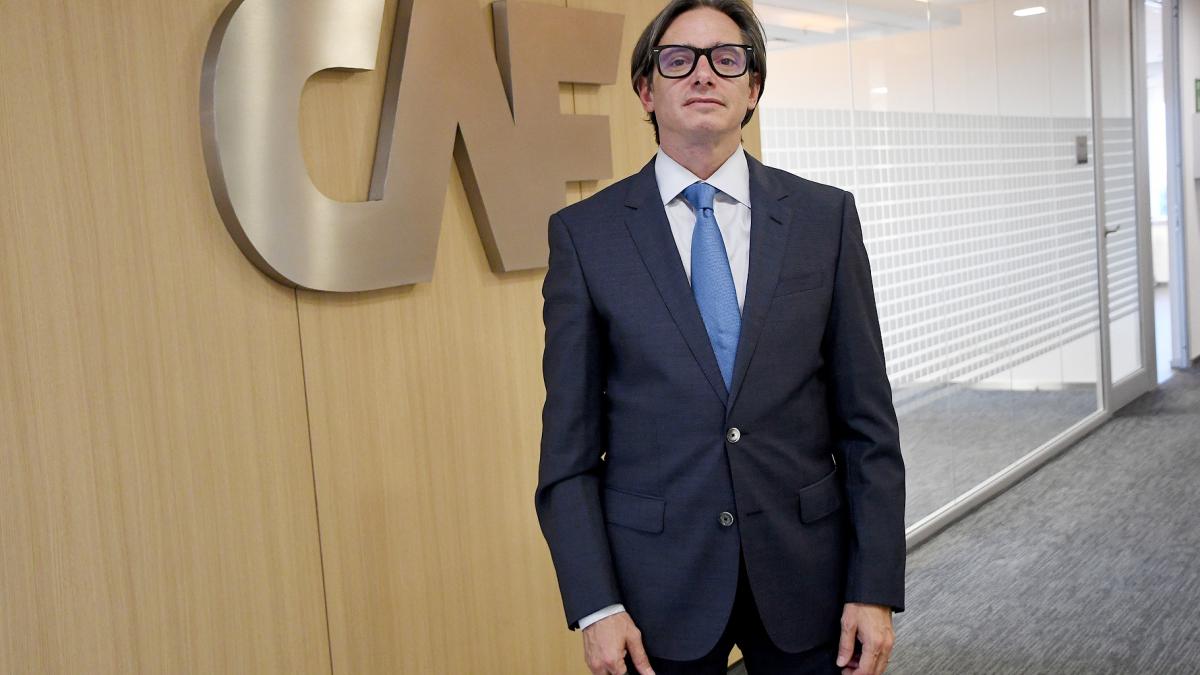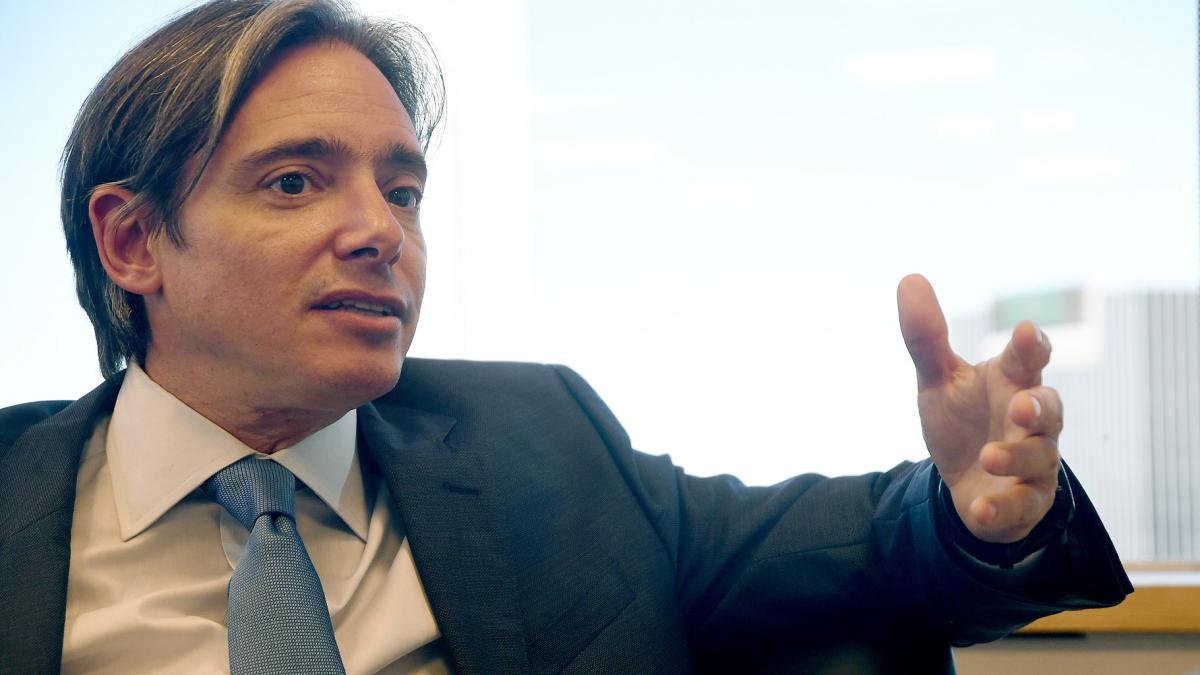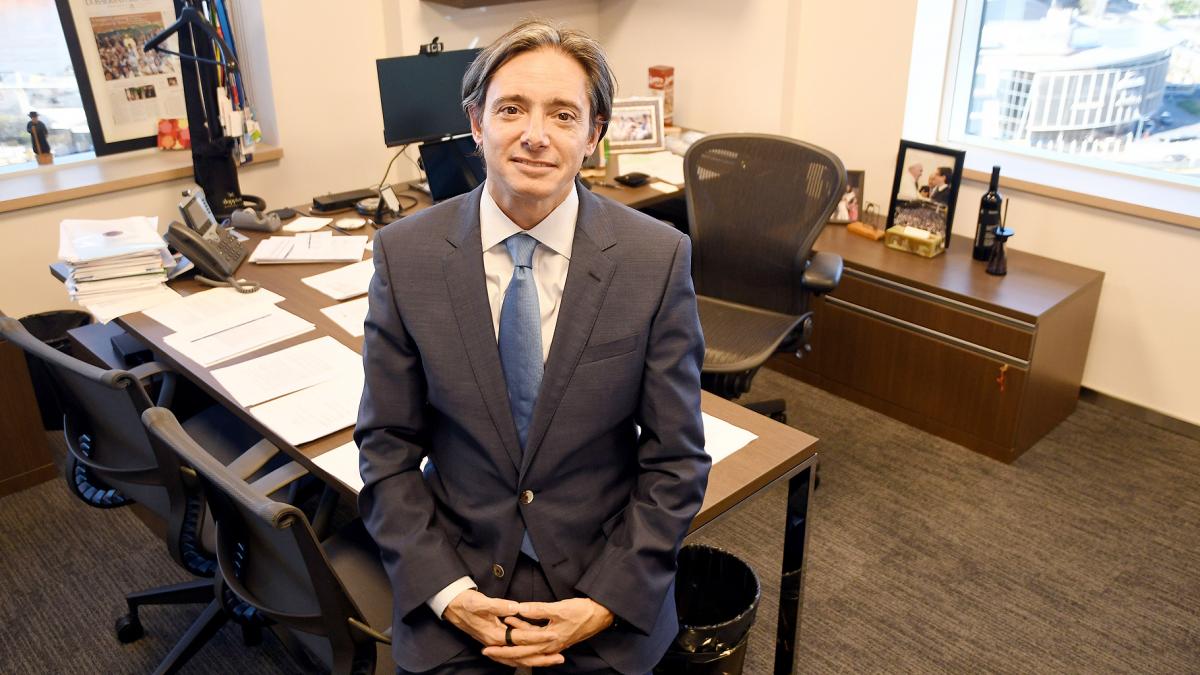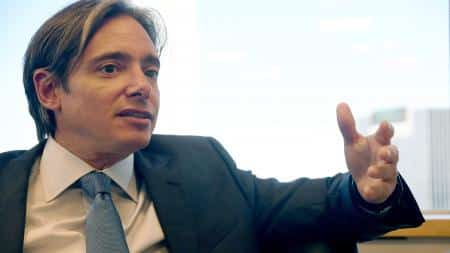 “We are very interested in all the areas that the Government of Argentina defined as priorities” / Photo: Raúl Ferrari.
“We are very interested in all the areas that the Government of Argentina defined as priorities” / Photo: Raúl Ferrari.
He Corporate Vice President of Strategic Programming of the Development Bank of Latin America-CAF, Christian Asinellihighlighted that the multilateral organization is analyzing the approval of credits for US$1,375 million for Argentina in the current year, with a focus on water resources programs and projects in northern Argentina, the satellite industry in the south of the country and access to key services for human development, among others.
The multilateral organization made up of Latin American and Caribbean countries has so far approved two initiatives for the country: one for a US$540 million loan for the reversion project of the Northern Gas Pipeline and complementary works to the President Néstor Kirchner Gas Pipeline (GPNK). .
Asinelli stated that the GPNK project “is not only good for Argentina, but it is also good because it can generate exports to Bolivia and from Bolivia to Brazil, and that helps all of southern Brazil as well, it is super interesting,” and stressed the that the Minister of Economy, Sergio Massa, is “doing a great job”.
In March it was approved another of the projects, in the city of Santiago de Chile, with an immediate disbursement of US$300 million to finance a Program for the Promotion of the Social Model of Disability and Access to Rights of Persons with Disabilities (Andis).
Last April, also, Minister Massa agreed with the organization the disbursement in the country of US$690 million over the next 60 days, for credit lines already approved.
 “Argentina has enormous potential in energy and food issues as well as rare minerals” / Photo: Raúl Ferrari.
“Argentina has enormous potential in energy and food issues as well as rare minerals” / Photo: Raúl Ferrari.
– What value does the organization have to invest in programs for the economic development of Argentina?
– This institution has, in particular, the double track that the country is the owner, but it is also a client. Argentina, Bolivia, Brazil, all the countries, those who sit on the board, the owners of the bank, are the countries of Latin America and the Caribbean. For us it has the value of regional integration. Chile just joined our board of directors very recently, in March, after years of being outside the institution since the Pinochet military dictatorship. Chile had been a founder of CAF in 1968.
– What projects or programs do you consider to be the most relevant?
– Those that have a high added value and that can generate more competitiveness, more employment. That is why we are very interested in everyone, precisely in all the areas that the Government of Argentina defined as priorities.
“The President Néstor Kirchner Gas Pipeline is not only good for Argentina, but it is also good because it can generate exports to Bolivia and from Bolivia to Brazil, and that helps all of southern Brazil as well, it is super interesting”
– Which areas or sectors are the most strategic?
– Everything that has to do with transportation, natural resources, physical and digital infrastructure; from satellites to schools, from social development issues, the food card to technological issues, work with the provinces, among other topics. The portfolio of projects that we have is very varied, for example, in the province of Jujuy and Santa Fe we have subnational programs such as Argentina more connected to generate fiber optics throughout the province, as well as water and sanitation projects such as those in the Buenos Aires district from Berazategui.
– What are your expectations regarding growth in Argentina?
– Our expectation is that for the next few years it will be very good. Argentina has enormous potential in energy and food issues as well as in rare minerals, such is the case of the lithium triangle formed by Argentina, Bolivia and Chile, where almost 70% of the planet’s lithium is.
 Photo: Raul Ferrari.
Photo: Raul Ferrari.
– At the regional level, what economic potential do the countries of Latin America and the Caribbean see?
– Latin America and the Caribbean is a solution region for the world’s problems in energy and food issues, among others. The AND of our institution is the integration of countries. We really like working on regional projects, border projects, projects that help generate integration in the physical part, roads, bridges. We are finishing one that is going to be inaugurated very shortly in Paraguay.
– Was the organization present at the spring meetings of the IMF and the World Bank, what role did they play there?
– As an institution we always try to participate in all international meetings. We are not part of the Fund or the World Bank, but we were able to be accredited as observers. We took advantage of the instance to meet with the ministers of the Caribbean who are not part of our institution, and are beginning a process to join the CAF.


